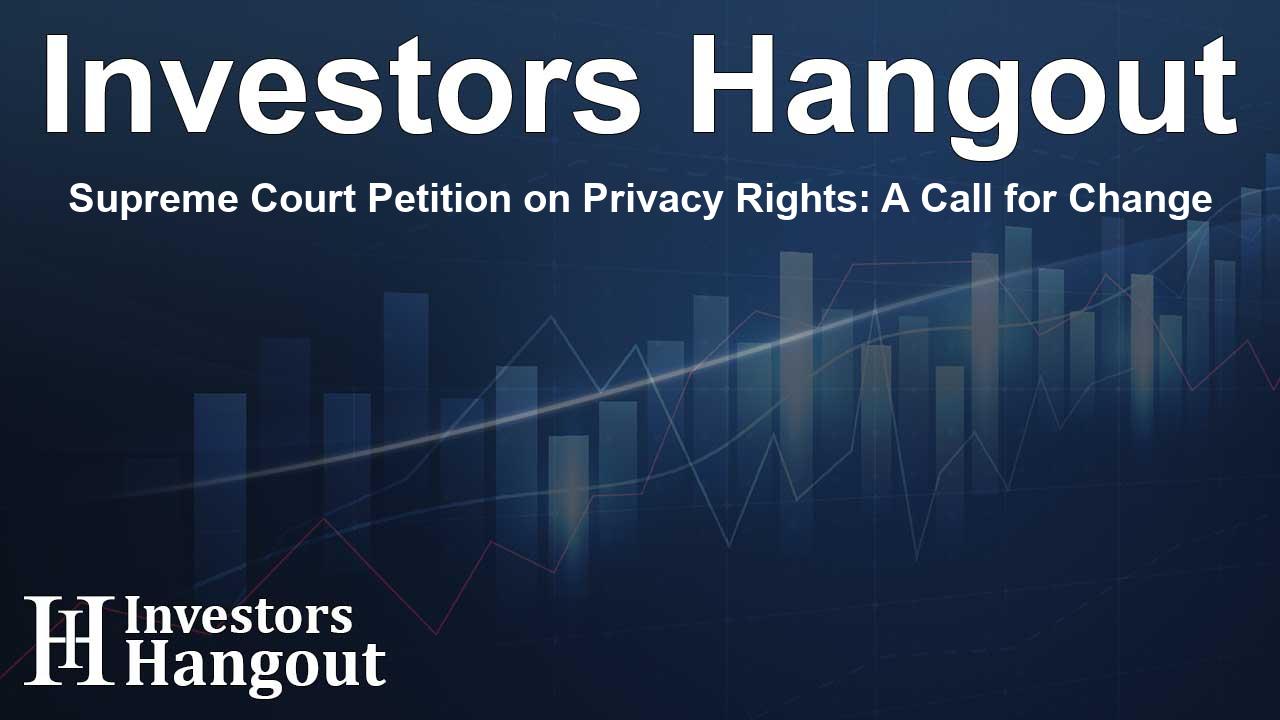Supreme Court Petition on Privacy Rights: A Call for Change

Supreme Court Case on Digital Privacy Rights
In a significant move for privacy rights, the New Civil Liberties Alliance has called upon the U.S. Supreme Court to consider a crucial lawsuit that challenges the existing interpretations of the third-party doctrine. This doctrine has long denied individuals the protection afforded by the Fourth Amendment concerning records stored with third-party entities. The case, titled Harper v. O'Donnell, targets the Internal Revenue Service's overreach in seizing private financial records from a major cryptocurrency exchange.
Context of the Case
The case revolves around the IRS's actions against James Harper, a client of the NCLA, whose financial records were captured without justifiable suspicion. This seizure impacted Harper and over 14,000 other individuals through an aggressive method called a "John Doe" summons. Such measures have raised alarms about governmental overreach, prompting calls for reform in how privacy rights are protected in the digital era.
The Ruling and its Implications
Last year, a three-judge panel of the U.S. Court of Appeals for the First Circuit handed Harper a partial victory by allowing his challenge against the IRS to proceed. However, subsequent decisions in the U.S. District Court for the District of New Hampshire complicated matters, as the court dismissed his case, claiming he did not adequately state a claim. The First Circuit later upheld this dismissal based on the contentious third-party doctrine.
The Need for Reassessment
The time has come for the Supreme Court to reassess this doctrine, especially in the context of digital evidence and cryptocurrency transactions. The crux of the argument is that data shared with third-party companies—be it internet histories, financial transactions, or medical records—should still enjoy the Fourth Amendment's protections. Justice Sonya Sotomayor has remarked on the inadequacy of the doctrine to meet the demands of today’s digital landscape, emphasizing the shift in how individuals share personal information.
A Modern Perspective on Privacy
Many civil liberties advocates argue that the Supreme Court's current interpretation of the third-party doctrine fails to account for modern technological realities. In the digital age, individuals often store sensitive information with various service providers. This constant sharing of information raises significant concerns about privacy rights, warranting an urgent legal reevaluation.
Voices from NCLA
Statements from NCLA representatives reflect the gravity of this situation. Litigation Counsel Sheng Li remarked on the historical shortcomings of the third-party doctrine, indicating that it has been increasingly outdated as technology evolves. Additionally, Senior Litigation Counsel John Vecchione emphasized that the constitutional promise is not realized until the Supreme Court offers clarity on these issues pertinent to the contemporary digital environment.
The Future of Privacy Rights
The Supreme Court has the opportunity to redefine how privacy expectations are measured against governmental scrutiny. As demonstrated in the Harper case, the seizure of records without individualized suspicion indicates a troubling trend toward mass surveillance that could undermine Americans' privacy rights. The outcomes of this case could shape the future legal landscape, especially regarding how privacy is safeguarded against government intrusions.
Conclusion: A Critical Moment for Privacy
The implications of the Supreme Court's decisions, particularly regarding the third-party doctrine, could be far-reaching. The NCLA’s appeal is not solely about one individual but represents a broader struggle for the privacy rights of all Americans navigating a world where sharing personal data is commonplace. Advocates are hopeful that this case will encourage a reevaluation of privacy rights, fostering a legal framework that better aligns with the realities of the digital age.
Frequently Asked Questions
What is the third-party doctrine?
The third-party doctrine is a legal principle that allows the government to access personal information shared with third-party entities without a warrant.
Who is involved in the Harper v. O'Donnell case?
The case involves James Harper and the Internal Revenue Service, with the NCLA representing Harper's interests.
What are the implications of this Supreme Court case?
The implications could reshape the legal understanding of privacy rights in the digital age and impact how government surveillance is conducted.
Why is the case significant for digital privacy?
The case is significant as it addresses the outdated interpretations of privacy rights that fail to protect individuals in the evolving technological landscape.
What is NCLA's mission?
NCLA aims to protect constitutional freedoms from encroachments by state and federal agencies, advocating for civil rights in modern contexts.
About The Author
Contact Dylan Bailey privately here. Or send an email with ATTN: Dylan Bailey as the subject to contact@investorshangout.com.
About Investors Hangout
Investors Hangout is a leading online stock forum for financial discussion and learning, offering a wide range of free tools and resources. It draws in traders of all levels, who exchange market knowledge, investigate trading tactics, and keep an eye on industry developments in real time. Featuring financial articles, stock message boards, quotes, charts, company profiles, and live news updates. Through cooperative learning and a wealth of informational resources, it helps users from novices creating their first portfolios to experts honing their techniques. Join Investors Hangout today: https://investorshangout.com/
The content of this article is based on factual, publicly available information and does not represent legal, financial, or investment advice. Investors Hangout does not offer financial advice, and the author is not a licensed financial advisor. Consult a qualified advisor before making any financial or investment decisions based on this article. This article should not be considered advice to purchase, sell, or hold any securities or other investments. If any of the material provided here is inaccurate, please contact us for corrections.
